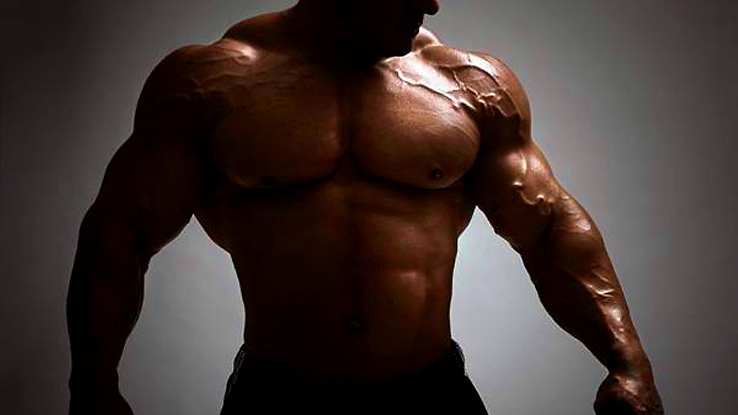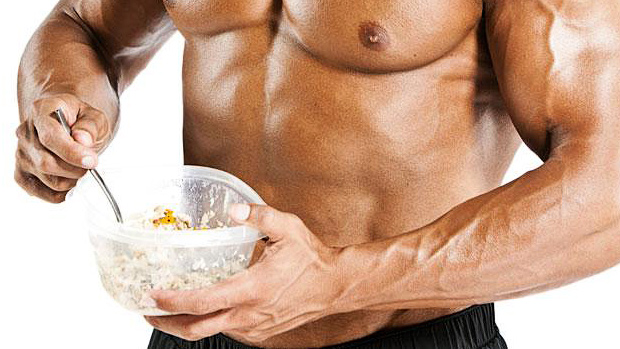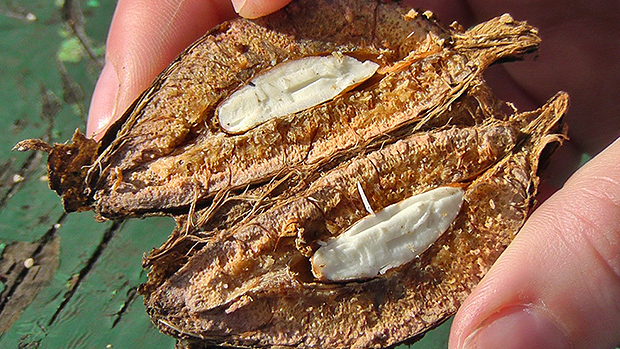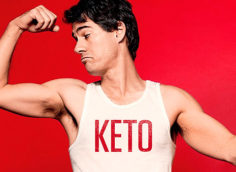Here's what you need to know...
- There are four dietary factors that can be altered to produce significant changes in body composition.
- When it comes to changing body composition, it looks like it's better to consume most of your calories early in the day.
- Not counting the window of opportunity around your workout, breakfast is the most important feeding of the day. And for faster fat loss, make it protein and fat.
Pop quiz: Name four dietary factors that can be altered to produce awesome changes in body composition.
Answer:
- Total daily caloric intake
- Meal or nutrient timing
- Macronutrient ratios
- Choosing the right type of macronutrients
I'm not going to talk about all of those factors, but I will focus on edifying you on #2. However, we're not going to focus on the all-important workout feeding window: before, during and post-training. Instead, I'm going to give you the latest on how important it is to consume more of your calories early in the day. That's breakfast, mi amigo.
I'm sure you've heard the notion that you don't want to eat too many of your calories late in the day. You know what I'm talkin' about, right? Like how that midnight snack of pizza and beer may end up re-shaping your body like a pepperoni? So is eating late the culprit? Or is it the fact that we tend to eat crappy food late at night? Let's face it, nobody ever craves a chicken breast with broccoli at midnight.
So what's the science say? There are a couple studies hot off the press that paint an interesting picture on the role of meal timing. A study from the Obesity journal examined overweight men and women and compared a weight loss diet with high caloric intake during breakfast versus an isocaloric diet with high caloric intake at dinner.
(Just to digress, isn't it a bit superfluous to specify in the journal Obesity that you used overweight and obese subjects? Is there any other kind of subject in this journal?)
The researchers took these rather husky subjects and split them up into one of two groups that both ate about 1400 kcal per day for 12 weeks. One group ate most of their food during breakfast (a.k.a. the BF group: 700 kcal breakfast, 500 kcal lunch, and 200 kcal dinner) while the other ate most of their calories at dinner (a.k.a. the D group: 200 kcal breakfast, 500 kcal lunch, and 700 kcal dinner). The macronutrient ratio for both groups was roughly 32% carbs, 41% protein, and 27% fat.
So what did they find?
The BF group lost a lot of weight, about 19.1 pounds! The D group lost a significant amount of weight, too, but much less than the BF group (-7.92 pounds). Furthermore, the BF group lost twice as much in waist circumference compared to the D group. Both glucose and insulin levels were also lower in the BF group. Average triglyceride levels decreased by 33.6% in the BF group, but increased by 14.6% in the D group, which is rather odd. And to top it off, the mean satiety (i.e., satisfaction with your meal) scores were significantly higher in the BF group (1).
This is a perfect example of how the timing as well as the distribution of your meals profoundly affects body composition. We already know that the peri-workout feeding window is critical for improving body composition, and now we also know that shifting your daily calories more towards the beginning of the day is helpful as well.
In a similar study published in another journal dedicated to the corpulent (International Journal of Obesity), scientists looked at the effect of meal timing on weight-loss during a 20-week intervention. Test subjects were grouped as early eaters and late eaters, according to the timing of the main meal (which, in this Mediterranean population, was lunch).
Fifty-one percent of the subjects were early eaters and 49% were late eaters – defined as eating lunch before 3:00 PM or after, respectively. Despite the fact that caloric intake, macronutrient composition, energy expenditure, appetite hormones, and sleep duration were the same for the late versus early eaters, the late eaters lost less weight then the early eaters, thus proving once again that it's better to consume more of your calories early in the day (2).
In the hierarchy of meal timing, I'd posit that the most important "meal" of all is the one consumed around the workout. A small meal 30 minutes or less pre-workout, comprised of carbs with a modicum of protein, combined with a during-workout drink, followed by a post workout meal of 20-40 g of protein is a good start.
Editor's note: Biotest's Plazma™ achieves the peri-workout goals laid out in the preceding paragraph, plus a whole lot more.
After the peri-workout window, consuming the majority of your calories early in the day could be an additional strategy for altering body composition, so bacon and eggs for everyone! All that protein (and fat) will improve your satiety and perhaps keep you from hogging out later in the day (3). There's even scientific proof that eating a protein-rich breakfast with eggs is better than eating a carb-rich breakfast with bagels. An 8-week study found that the egg-based breakfast consumers had a 65% greater weight loss, a 34% greater reduction in waist circumference, and a 16% greater reduction in percent body fat. Eggs trump bagels for weight loss. Sorry, Einstein (4).
Bottom line: Given the choice, it's best to consume more of your calories early in the day.
References
- Jakubowicz D, Barnea M, Wainstein J, Froy O: High Caloric intake at breakfast vs. dinner differentially influences weight loss of overweight and obese women. Obesity (Silver Spring) 2013.
- Garaulet M, Gomez-Abellan P, Alburquerque-Bejar JJ, Lee YC, Ordovas JM, Scheer FA: Timing of food intake predicts weight loss effectiveness. Int J Obes (Lond) 2013, 37:604-611.
- Leidy HJ, Ortinau LC, Douglas SM, Hoertel HA: Beneficial effects of a higher-protein breakfast on the appetitive, hormonal, and neural signals controlling energy intake regulation in overweight/obese, "breakfast-skipping," late-adolescent girls. Am J Clin Nutr 2013, 97:677-688.
- Vander Wal JS, Gupta A, Khosla P, Dhurandhar NV: Egg breakfast enhances weight loss. Int J Obes (Lond) 2008, 32:1545-1551.




